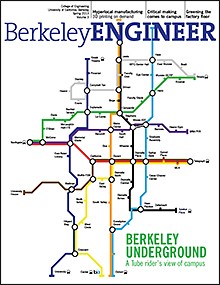Experiential ed.
Some of Berkeley Engineering’s best lessons are learned outside lecture halls. Labs, shops and workspaces peppered throughout the college’s dozen buildings allow student engineers to build, create and prototype.
Labs like the machine shop in Etcheverry Hall or the structures and materials lab in the heart of Davis Hall have been used by generations of Berkeley engineers. Others, like the new Invention Lab and the Texas Instruments Electronics Design Lab, were recently opened to give students an opportunity to work with the newest tools and latest technologies.
These spaces form the bedrock of hands-on learning experiences and provide tomorrow’s innovators with a place to learn and hone their technical skills.
Click on a photo for a larger view.
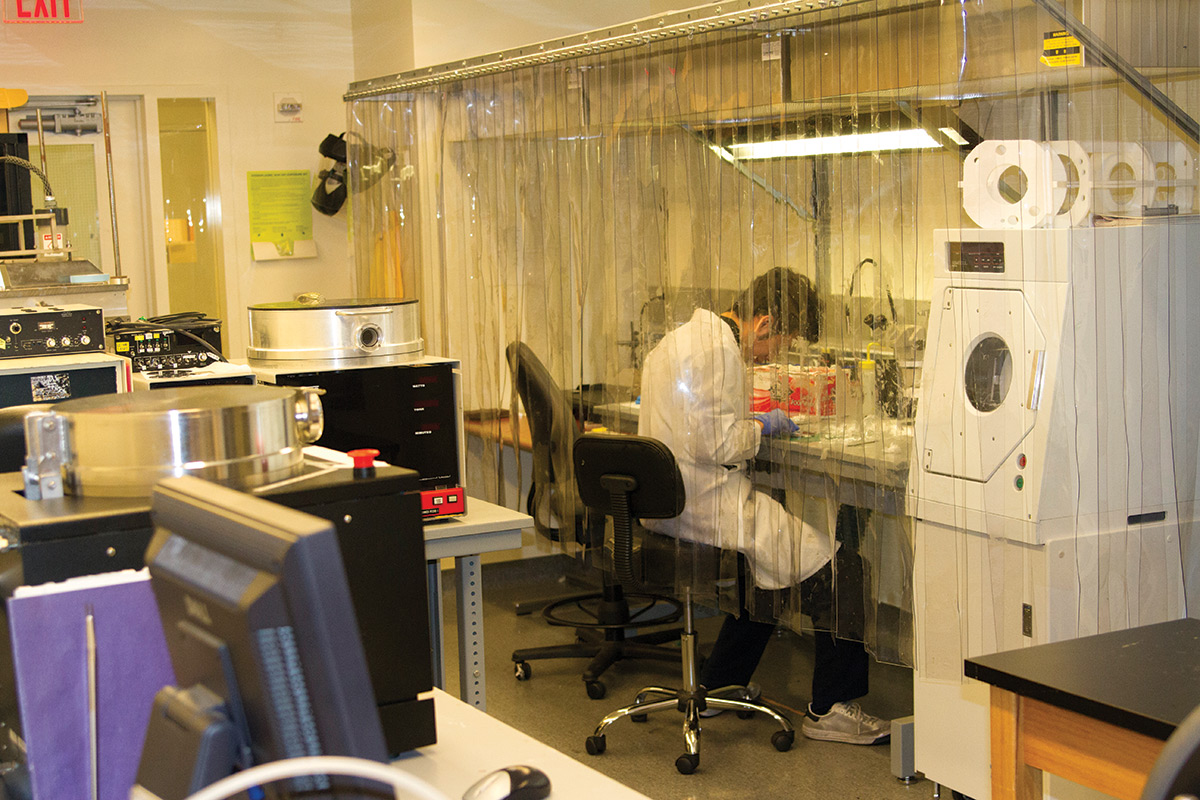 Biomolecular Nanotechnology Center (BNC)
Biomolecular Nanotechnology Center (BNC)
Stanley Hall – Founded 2007
The BNC combines biology, physics, chemistry, electrical and mechanical engineering and materials science all in one place. The lab is part of the California Institute for Quantitative Biosciences, or QB3, a partnership between UC campuses at Berkeley, Santa Cruz and San Francisco. The center offers bioengineers the opportunity to fabricate and experiment with micro-fluidic devices. At the center, students and faculty are working to shrink the time, scale and expense of biological research, which will, among other things, improve the clinical implementation of medical advances. (Photo by Daniel McGlynn)
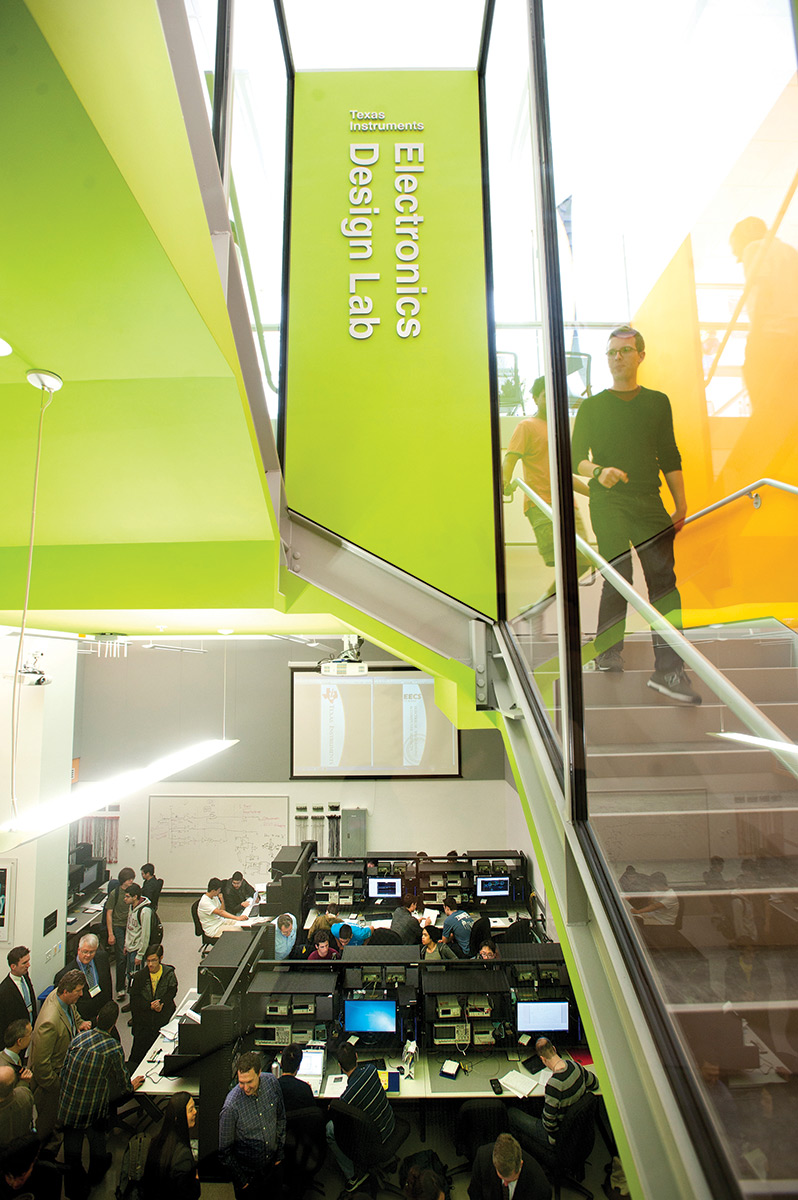 Texas Instruments Electronics Design Lab
Texas Instruments Electronics Design Lab
Cory Hall – Founded 2013
Known to generations of electrical engineering students as the EE40 lab, this first-floor space in Cory Hall has been renovated with support from Texas Instruments and Agilent Technologies. More than 1,000 students each year will use the lab to design, build and test microelectronic circuits and other devices. The new space also connects formal classrooms and design labs in Cory Hall with a hacker/maker space, so students can work on electronics projects on their own time. (Photo by Noah Berger)
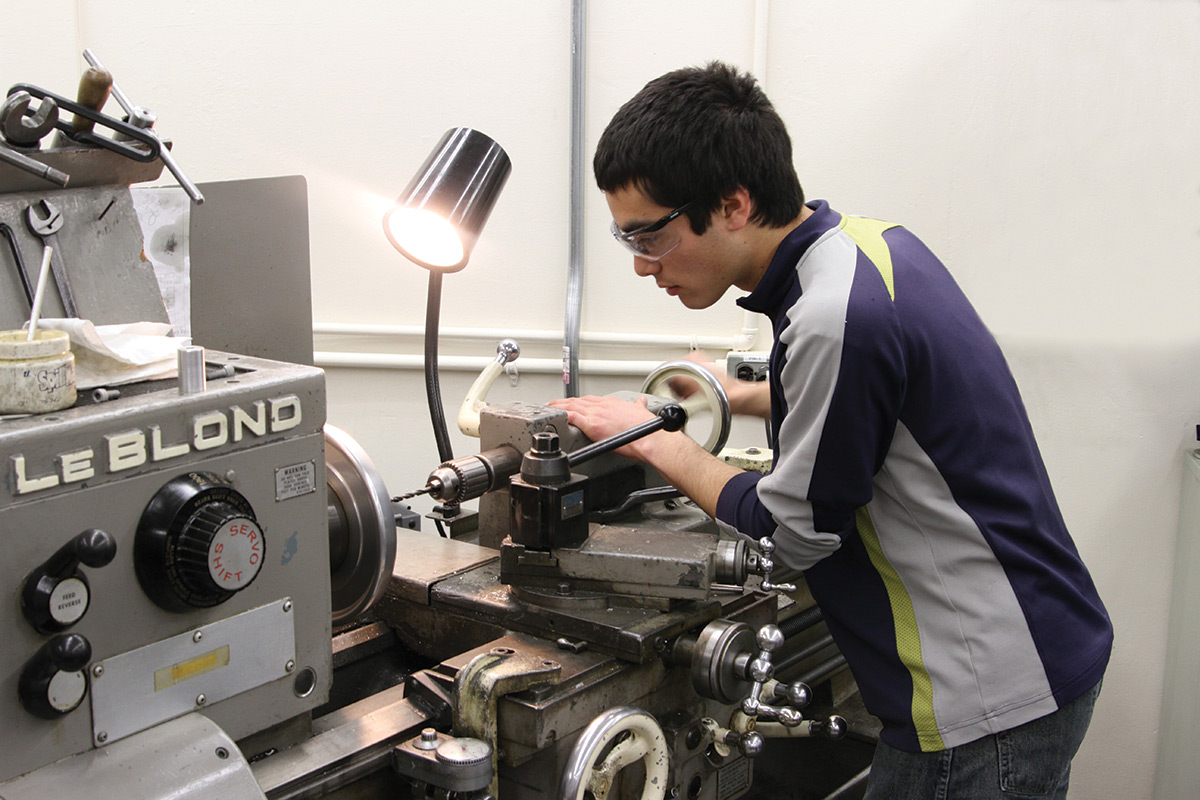 Mechanical Engineering Machine Shop
Mechanical Engineering Machine Shop
Etcheverry Hall – Founded 1964
In the machine shop in Etcheverry Hall, students and a staff of professional mechanicians work side-by-side. The shop supports engineers from all departments, but most are mechanical engineers working on class projects. The professional staff offers instruction on specific machines and safety and operational training, and builds components for faculty research. In addition to the more traditional brakes, presses, lathes and mills, the machine shop was recently renovated to include digital fabrication and rapid prototyping tools. (Photo by Daniel McGlynn)
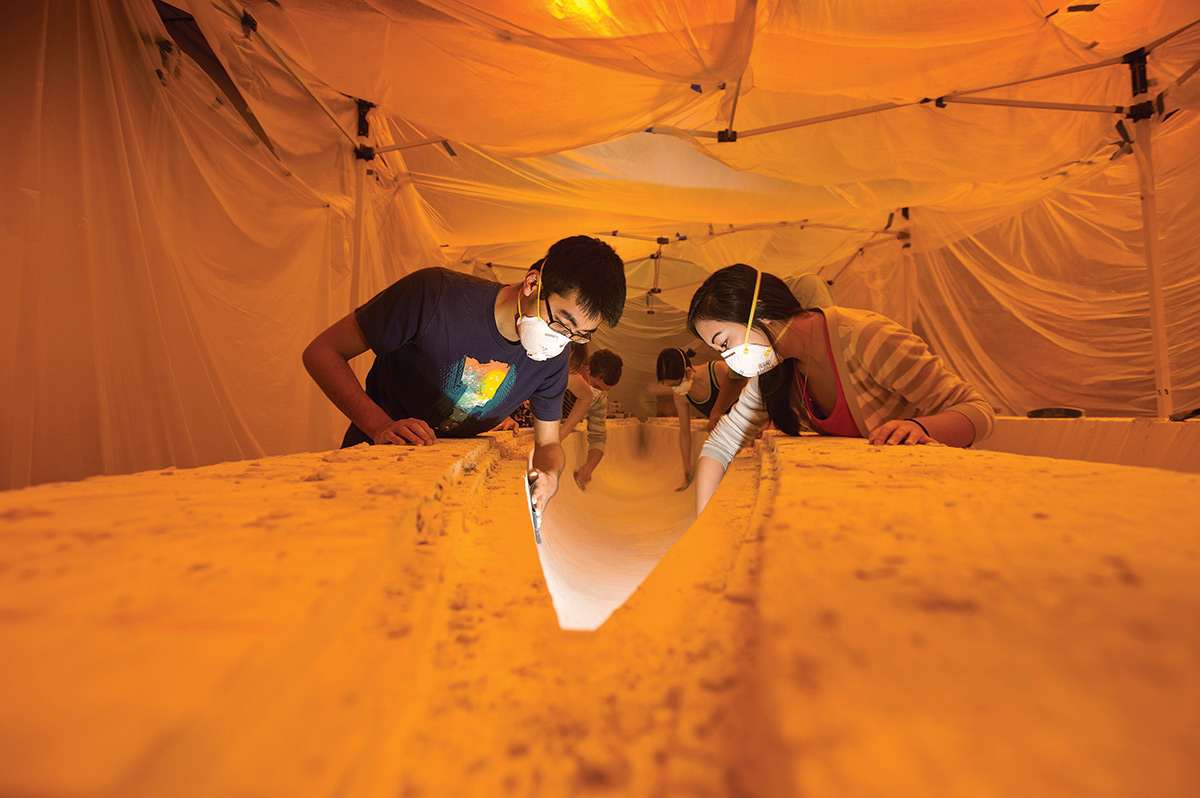 Civil and Environmental Engineering Lab
Civil and Environmental Engineering Lab
Davis Hall – Founded 1968
The cavernous structures and materials lab in Davis Hall spans two floors and features heavy equipment used by CEE faculty for building and testing various methods of infrastructure construction, including scale models of California’s highway system and large machines capable of simulating earthquakes. The steel bridge and concrete canoe student teams use the lab to build their projects for national competitions every year. (Photo by Noah Berger)
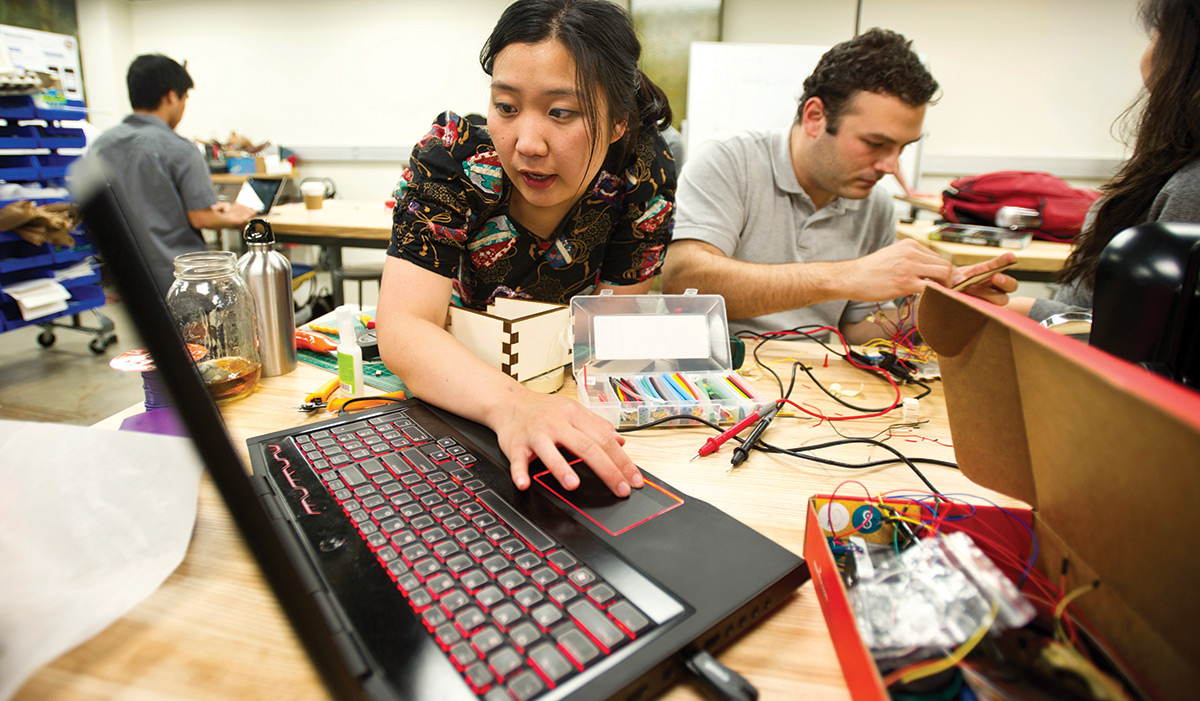 Invention Lab
Invention Lab
Sutardja Dai Hall – Founded 2012
The Invention Lab, on the ground floor of Sutardja Dai Hall, was opened at the end of 2012. Part of the Center for Information Technology Research in the Interest of Society (CITRIS), the lab is already well-used by a diverse set of students from many disciplines across campus. Two popular computer science classes, Critical Making (pg. 8) and Interactive Device Design, are taught in the lab. Students have access to prototyping materials such as foam core, wood and acrylic, as well as 3D printers and a laser cutter. (Photo by Noah Berger)

